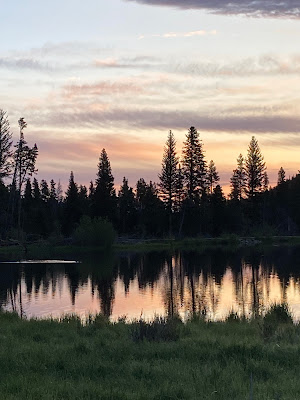The last time I saw my primary care physician, I was handed a clipboard and instructed to answer page after page of questions...as always. The questions included updates to my demographics, my insurance information, my family medical history, and a "health risk assessment" that included questions about lifestyle (exercise, diet, smoking, and alcohol/drug use), about my mood and stress levels, current and previous health conditions, dementia screening, recent falls, and my ability to perform daily activities such as feeding myself, dressing, and bathing. It's annoying to fill out the same questionnaires year after year because it's time consuming and redundant...but it makes sense from a health maintenance perspective. This line of questioning helps the physician identify problems that predict poor health outcomes. It provides information he can use to institute preventive strategies, as well as timely interventions to correct or compensate for developing problems.
"A facility that asks you to fill out
a health screening form is a sign of one
that really cares about its members."
~Kathi Davis~
This, however, only works if the patient is honest with his answers (ie. how much he
really drinks, or how many times she
really has fallen). It only helps if the health care provider takes the time to review his patient's answers, and who has time for that? And, it only benefits the patient if he is willing to follow his provider's recommendations. THREE BIG IFs.
I know this because I'm a physician, and at times, I'm a patient.
As a physician, I learned not to ask my teenaged patients if they were sexually active because the answer was always, "No"...lest the truth get back to Mom and Dad. Instead, I asked how many sexual partners they'd had. Two...twelve...twenty? You'd be surprised.
Likewise, when (if) my PCP asked me whether I felt anxious or depressed, I might have said "No"...because I wasn't comfortable sharing it with him, and I was pretty sure he had neither the time nor the expertise to help me, so why bother?
Meaning we miss a lot of important information when we explore a patient's medical history...
"There is no greater agony than
bearing an untold story inside of you."
~Maya Angelou~
...not to mention their backstory.
Let's say your patient has breast cancer. She is forty-four years old, the same age her mother was when she was diagnosed. But her mother died following surgery and a full course of radiation and chemotherapy. This is what scares her. She jumps to the conclusion that this is her fate as well, despite the fact that her mother's cancer was far more advanced when it was detected. Despite the fact that treatment has improved in the twenty years since her mother's diagnosis. The patient's initial reaction to her diagnosis may be to give up right then and there...her unnamed, invisible, and unspoken thoughts, feelings, and emotions left unchecked.
"Your body hears everything
your mind says."
~Naomi Judd~
Or, perhaps the patient is a middle-aged man who schedules a ten minute appointment with you so he can get something for his heartburn. But he isn't simply experiencing indigestion. He has angina, and it's getting worse. He has convinced himself that it's just his stomach because the thought of a heart attack scares him. His brother had one last year, and ended up with a pacemaker and a defibrillator. His ten minute appointment ends up requiring an EKG and blood work, and it stretches into a forty-five minute dialogue about unstable angina and the need for hospitalization. He tries to laugh it off, but beneath his cavalier manner, he fears for his life. His family. His business. All of it unspoken, invisible, unacknowledged.
"A physician is obligated to consider
more than a diseased organ,
more than even the whole man.
He must view the man in his world."
~Harvey Cushing~
Clues to the unspoken forces at work in the patient's life include refusal of or noncompliance with treatment. Denial, anger, impatience, or resistance. Reticence. Despair.
As health care providers, we must handle these patients with care. We need to ask about their fears, expectations, and perceptions. We have to take the time to speak about what we intuit to be unspoken or unacknowledged. To take the time and make the effort to uncover the truth.
If you are the patient and your story is too scary, or shameful, or complicated to put into words, let your provider know you are struggling. The words will come to you when you have a dedicated listener. He needs to know.
"Anything will give up its secrets
if you love it enough."
~George Washington Carver~
jan

.jpg)






.jpg)
.jpg)


.JPG)
